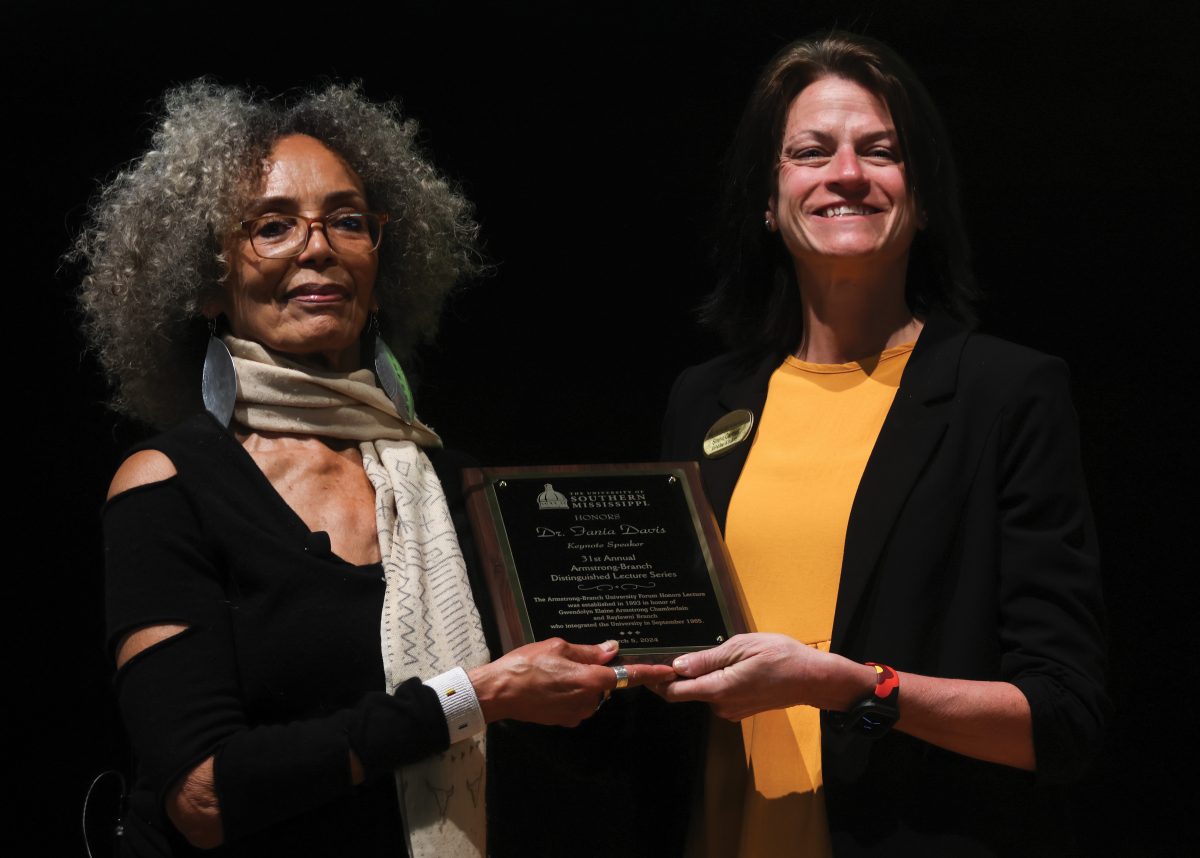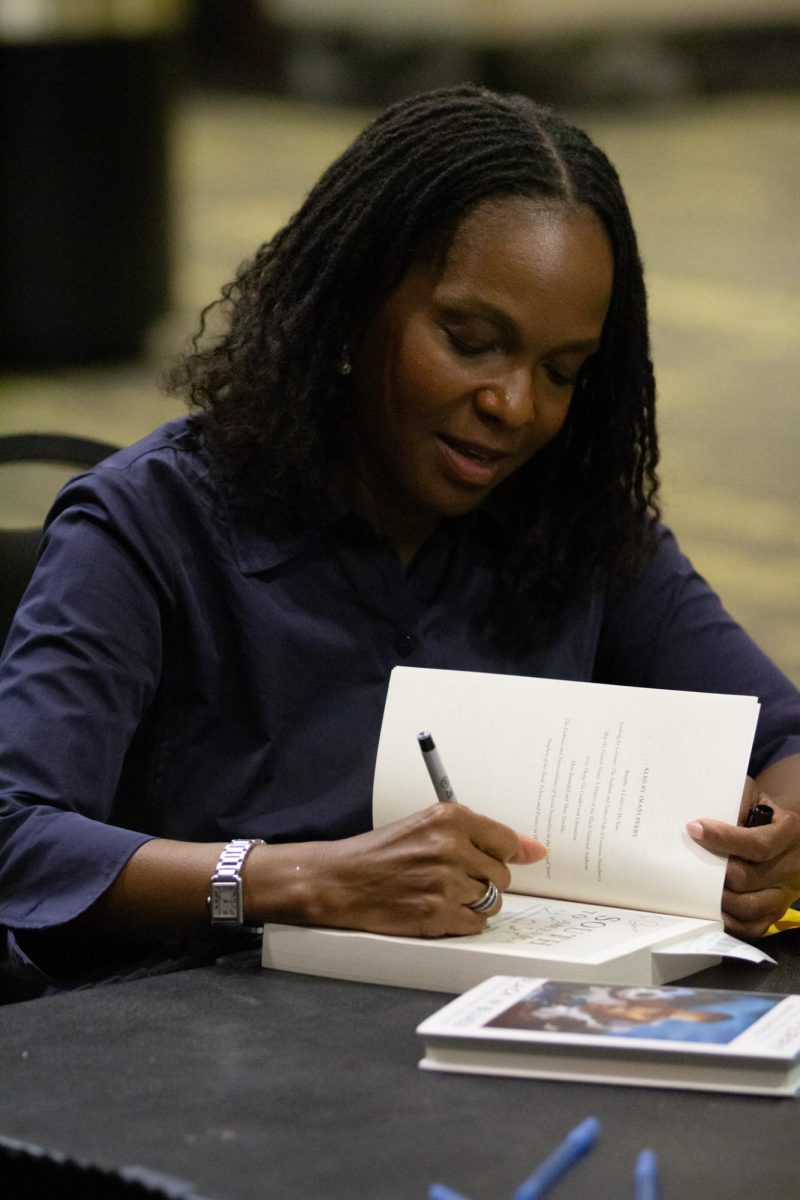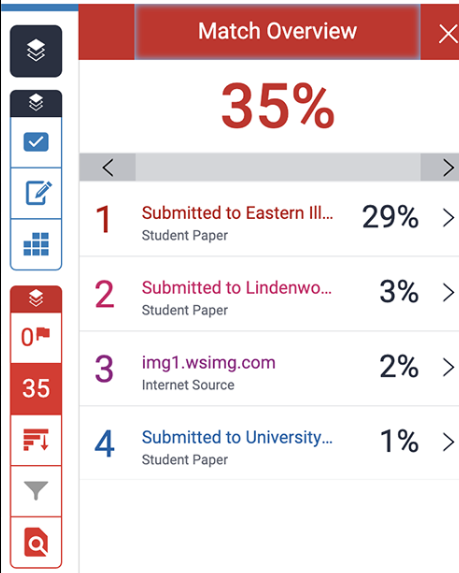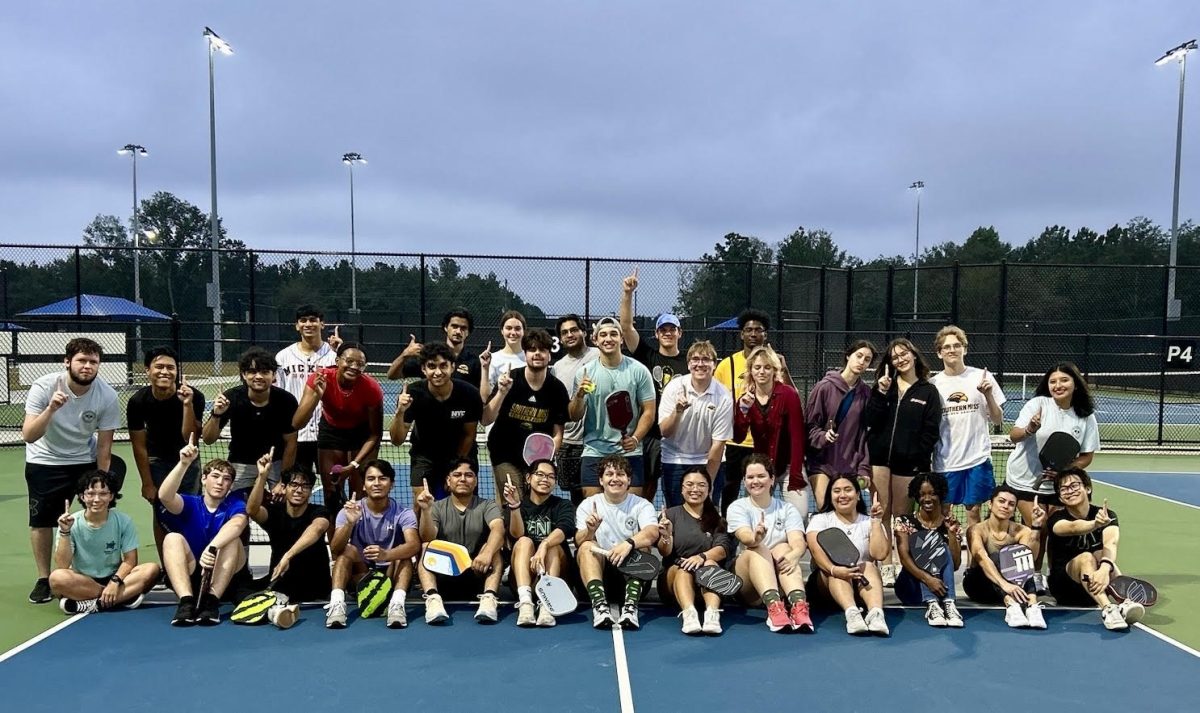The University of Southern Mississippi recently hosted a powerful event with its Armstrong-Branch Distinguished Lecture featuring Dr. Fania Davis, a renowned civil rights attorney, restorative justice practitioner, and social justice activist for its 31st year. The Armstrong-Branch Distinguished Lecture Series honors USM’s pioneering African American students Gwendolyn Armstrong-Chamberlain and Raylawni Adams Branch, who enrolled in 1965.
Dr. Eddie Holloway, Senior Associate Provost for Diversity, Equity, and Inclusion, welcomed the crowd to the Thad Cochran Center Ballrooms, while Dr. Delores McNair, Associate Director for Community and Belonging, introduced the esteemed speaker.
Davis’ vision of creating a society rooted in healing instead of harm was reflected throughout her lecture. A child of the civil rights movement, her commitment to justice was crystallized at age 10 when two of her childhood friends were killed in the 1963 Birmingham church bombing. She had a distinguished career as a civil rights trial lawyer while being an active voice in numerous social movements.
Her path eventually led her to restorative justice after studying indigenous healing practices, particularly in Africa. As the founding director of Restorative Justice for Oakland Youth (RJOY), Davis has been a pioneering force in implementing restorative approaches to discipline in schools and the justice system.
“Restorative justice is an approach that has the healing capacity to transform discipline practices, justice processes, and broadscale societal violence,” Davis explained. “So we began to use restorative justice as an alternative to out-of-school suspension that disproportionately impacted black children and children of color. Our goal was to keep kids in school, as I said, and to disrupt the school-to-prison pipeline, and to disrupt the chip away at mass incarceration. In our first pilot, we reduced suspension rates by 87%. We eradicated violence. Children learned to talk instead of fight, through their differences.”
She described how restorative practices like peace circles can resolve conflicts by giving voice to those harmed while allowing responsible parties to take accountability and begin making amends. RJOY was founded in 2005 and In 2007, RJOY’s city-funded West Oakland Middle School pilot project eliminated violence and expulsions, and reduced suspension rates by 87%, saving the school thousands in attendance and Title I funding. Today, more than 20 schools in Oakland School District use the same restorative justice approach. These approaches aim to heal rather than perpetuate cycles of harm and violence.
Davis highlighted the potential of truth and reconciliation processes based on restorative justice to reckon with America’s legacy of racial injustice and chart a new path forward. She urged universities to model these approaches on campus.
The lecture also honored Gwendolyn Armstrong-Chamberlain and Raylawni Adams Branch, USM’s first African American students who bravely enrolled amid the turmoil of the civil rights era. Both women gave moving remarks reflecting on their pioneering roles and life journeys.
Dr. Sirena Cantrell, Associate Vice President for Student Affairs and Dean of Students, delivered the closing statements.




























